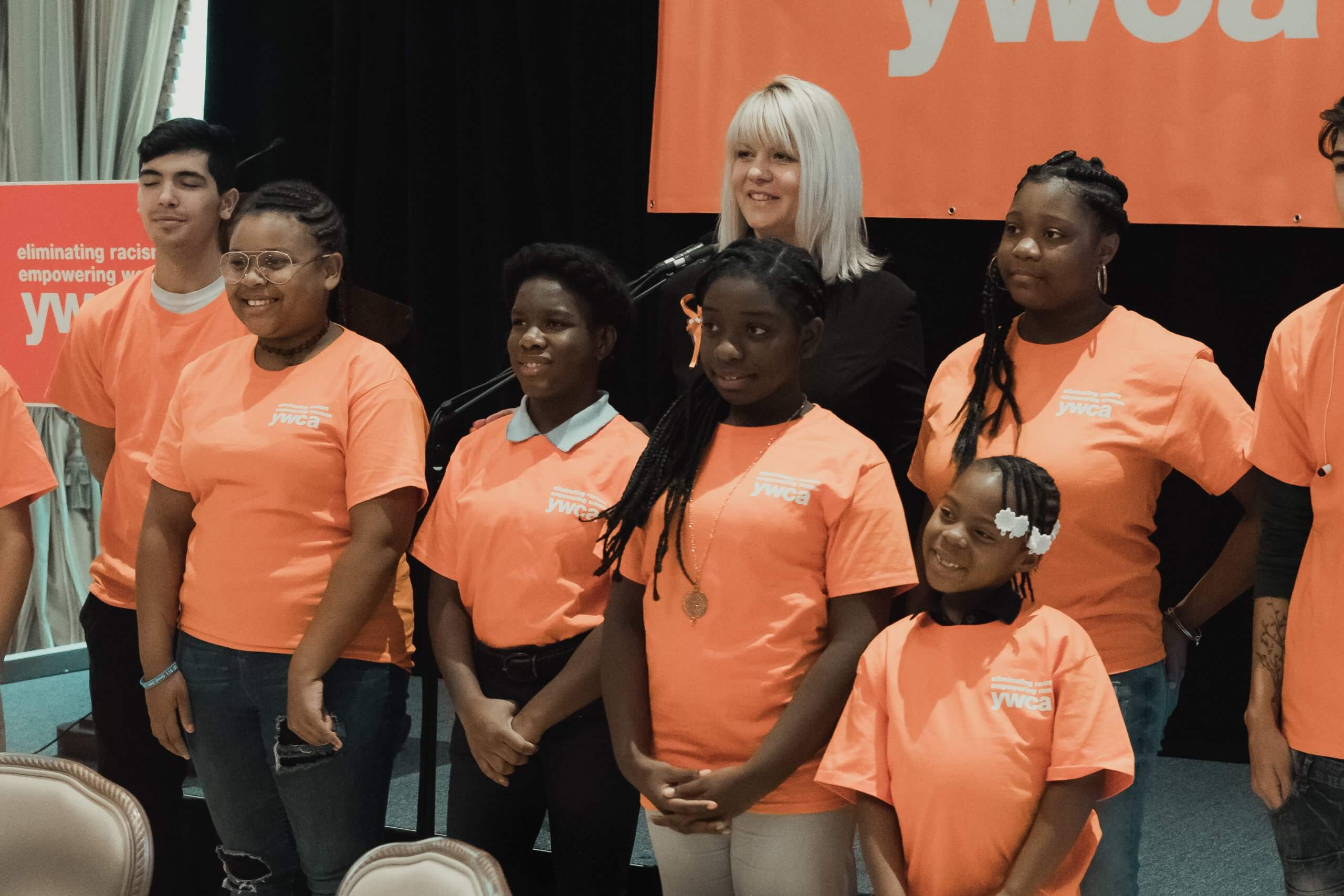5 Questions with Stu: Stephanie Staats, CEO, YWCA of Delaware

She also served as an Adjunct Instructor at DelTech, and the Chief of Staff at Delaware Humanities Forum. Stephanie has shown strong leadership skills as she has helped the YWCA continue its role as a leading social change organization in the state.
* * *
1. What motivated you to get into public service?
I developed an awareness of inequality as a child. I grew up in a diverse city, but it was socially segregated. I noticed who lived in the wealthiest neighborhoods, got treated kindly in stores and on the streets, and who did not. I experienced the overt distrust between people who were different from one another. I heard and felt how women and girls of all backgrounds were devalued. It troubled me greatly. So I would say that public service chose me. Leading YWCA Delaware has been an amazing opportunity to work toward the elimination of racism and empowerment of women.
2. What community endeavors are you proudest to engage in?
Since we launched YWCA’s Sexual Assault Response Center (SARC) in 2016, it has been a privilege to provide 24/7 crisis support to victims statewide and to amplify the community conversation about the causes and effects of sexual assault. The numbers are staggering, as are the negative long-term impacts on economic success, physical and emotional health. There are many misunderstandings about the issue of sexual violence and until we de-stigmatize open conversation about it there will be no advancement in social attitudes, institutional practices and systems response for victims.
3. How does your organization contribute to expanding opportunity for people in Delaware?
YWCA’s mission is to eliminate racism and empower women. We achieve this by offering programs that advance housing stability, health and safety, and e conomic empowerment for women and their families. Specific programs can be found on our website at www.ywcade.org. In 2018, we served more than 5,200 Delawareans. Our social advocacy initiatives concentrate on racial justice, gender-based violence, civil rights, and economic opportunity for marginalized communities. In 2019, we launched “Dialogue to Action” groups to facilitate individuals’ understanding of inherent bias, its effects, and to inspire action as a result. More than 200 individuals participated in the first three months.
conomic empowerment for women and their families. Specific programs can be found on our website at www.ywcade.org. In 2018, we served more than 5,200 Delawareans. Our social advocacy initiatives concentrate on racial justice, gender-based violence, civil rights, and economic opportunity for marginalized communities. In 2019, we launched “Dialogue to Action” groups to facilitate individuals’ understanding of inherent bias, its effects, and to inspire action as a result. More than 200 individuals participated in the first three months.
4. What do you see as the biggest challenges and opportunities facing philanthropy today?
An overall challenge is that as corporate giving has become more targeted on a regional scale, the administrative burden for government funding has increased, and it puts more pressure on individual giving. Organizations have an opportunity to be innovative in how they secure diverse revenue sources while staying in alignment with organizational values. YWCA included this opportunity as a priority in its 2019-2021 Strategic Plan.
5. If you could do one thing to increase equity in Delaware, what would you do?
At YWCA we practice our belief that issues overlap and intersect, and in order to achieve equity in opportunity, each issue must be addressed. To put it simply: you can’t solve for one without the other and expect lasting change. This belief is why YWCA offers programs and advocacy in the core areas of women’s lives: economic empowerment, personal safety, legal rights, health and education. It is why we work collaboratively with more than 50 other organizations across the state when a client has a specialized need for a service that we don’t provide. A holistic approach will increase equity.
———————————
About 5Qs: Each month, we ask local philanthropic leaders to answer five questions about how they view philanthropy in their work, their lives, or their organizations. It’s a chance to hear from people we all know, and some you may not know – but in a different way. This is the second in the series.